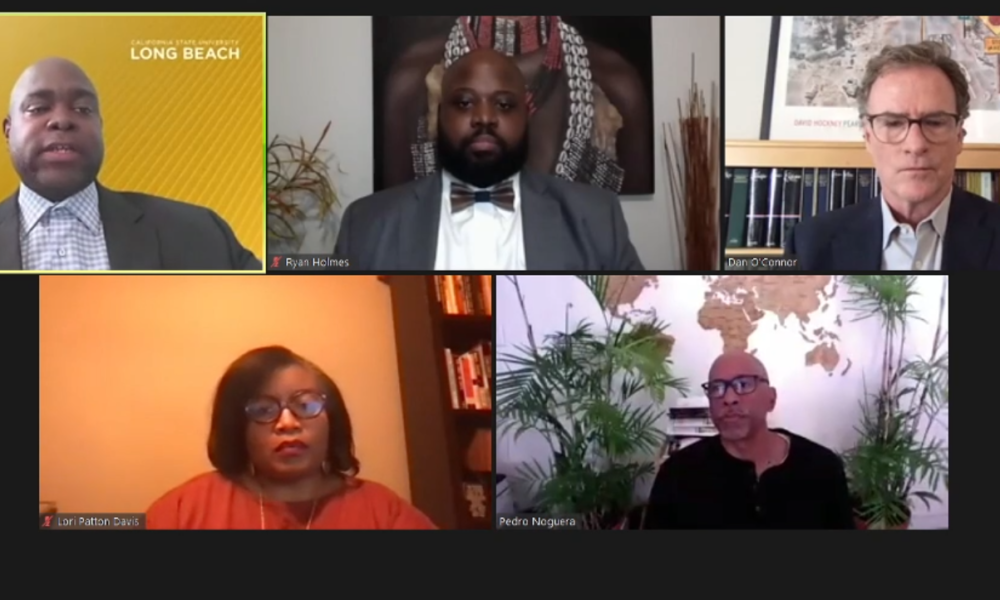As part of Long Beach State’s virtual celebration of Black History Month, John Hamilton, associate vice president of university access and retention, hosted the webinar “The Audacity of Leading from a Racial Equity Lens” on Monday.
The panel consisted of four members from higher education with leadership roles at their respective universities. The panelists discussed how being leaders with a lens on racial equity can benefit faculty, staff and students.
“Having a racial lens ensures that those who are racially marginalized are seen, and their voices become central to the work being done,” Lori Patton Davis said, the chair of educational studies at Ohio State University. “We are engaging in more accountability. We hold those in organizations accountable to create conditions to help everybody thrive.”
CSULB’s Associate Dean of the College of Liberal Arts, Dan O’Connor expanded on Patton Davis’ point. He gave examples on what happens when racial equity is not considered, such as racial disparities with how coronavirus vaccines are distributed.
“The racial equity lens gives us a specific lens to address specific problems that are incumbent upon us as leaders to address,” O’Connor said.
Ryan Holmes, associate vice president of student affairs and the dean of students at the University of Miami, spoke about how he hoped leaders are listening to the public on how to change for the better. He believes that speaking up and being vocal will get those in power to listen.
“There are a great deal of people now who are conscious and expecting change,” Holmes said. “They aren’t expecting little services, they are expecting structural change.”
Patton Davis agreed with Holmes that leaders should listen to those speaking up, but she said she does not believe change will happen anytime soon and it is instead up to the next generation to implement systematic change.
“Paradigm shifts aren’t easy,” Patton Davis said. “But I’m not counting on the white male [leaders] to engage in a dramatic shift just because a black person died, because we’ve been dying.”
Holmes also stressed that access is crucial to racial equity, and that race has been the foundation for everything in America since its inception.
“Race has always dictated who can access what,” Holmes said. “Who can read what. Who can go places. Who can be seen as a person. We have to start with accessibility.”
Pedro Noguera, the dean of the University of Southern California Rossier School of Education, spoke on how institutional racism is often misunderstood and that people mistakenly believe that it is almost gone.
“People think that if we get a person of color in a leadership role then things will change,” Noguera said. “What they don’t realize is that there are practices and procedures that have been in place for a long time that are systematically racist.”
Noguera used the example of faculty hirings in education that use search committees. Even the most well-intentioned people who have gone through diversity training will subconsciously favor people who are like themselves with similar backgrounds, he said.
“We cannot solve a complex issue with a simple solution,” Noguera said. “A lot of institutions try to do diversity training, but haven’t looked at how the institution operates, how jobs and promotions are obtained, what students rely on for help. We need to look at the system from a whole.”
The panelists hoped to inspire people to be advocates for what is right and to be a leader not for yourself, but for the people around you.
“Being audacious is so important to leadership, you can’t be in this role and scared too,” Patton Davis said. “You have to be courageous and willing to ruffle feathers.”




